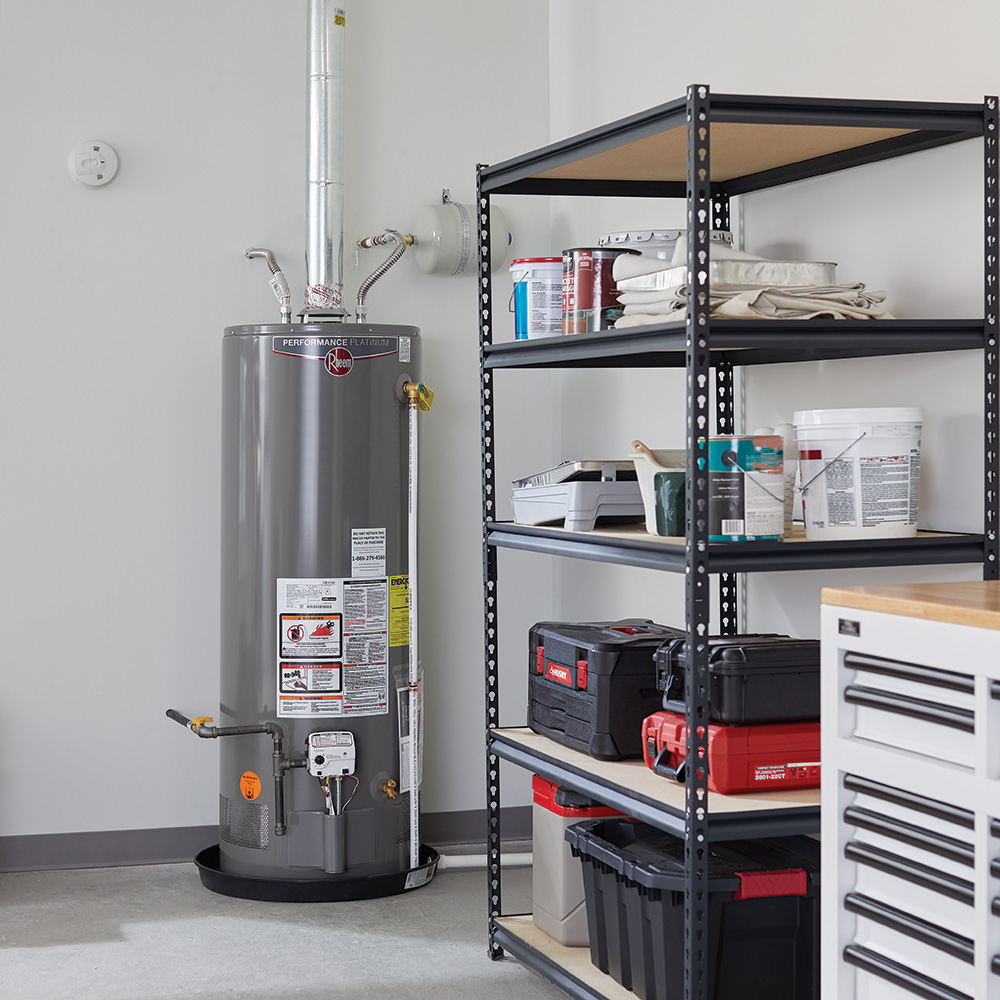Complete Overview to Water Heating SystemInstallation and Substitute
Comprehending the details of hot water heater setup and substitute is vital for property owners looking for to make certain efficiency and dependability in their warm water supply. From selecting the proper kind and size to carrying out a smooth installation process, a number of aspects must be considered to prevent usual risks. This overview will offer you with the necessary steps and insights to navigate the complexities of this home enhancement job, while likewise highlighting essential upkeep techniques that can lengthen the life of your system. As you explore these elements, you might discover yourself reassessing your present configuration and identifying locations for renovation.
Kinds Of Water Heating Systems
When taking into consideration hot water heater setup and replacement, it is necessary to recognize the numerous kinds of hot water heater available on the market. One of the most typical kinds include container water heating systems, tankless water heating units, heat pump hot water heater, and solar hot water heater.
Container water heaters are typical systems that keep a particular quantity of warm water, making them readily available when needed. In contrast, tankless water heating units give hot water on demand, getting rid of the requirement for storage.
Heat pump hot water heater utilize power to move warm from the air or ground to warmth water, supplying considerable power cost savings yet requiring more area and details setup conditions. Solar water heaters harness solar energy to heat water, providing an environmentally friendly choice with possible long-lasting cost financial savings, although they often require a backup system for cloudy days.
Understanding these options makes certain educated decisions relating to setup and substitute, providing to particular needs and preferences.
Choosing the Right Dimension
Choosing the suitable dimension for a water heating system is crucial to ensure optimum performance and efficiency. A device that is as well little will battle to satisfy household needs, leading to irregular hot water accessibility and enhanced power intake. Alternatively, an oversized water heating system can lead to unneeded energy waste and greater energy bills.
To establish the ideal dimension, take into consideration the household's peak warm water use. This can be determined based on the variety of occupants and their regular hot water needs. A household of 4 may require a water heating unit with an ability of 50 to 80 gallons, depending on the usage patterns, such as simultaneous showers and washing.
In addition, analyze the recovery rate, which determines exactly how rapidly a heating system can replenish hot water after it has actually been used. For tankless designs, emphasis on the circulation rate, determined in gallons per min (GPM), to guarantee it satisfies the house's simultaneous demand.

Installation Refine Summary

Next, the old device should be disconnected and gotten rid of, taking care to follow neighborhood codes and guidelines concerning disposal. As soon as the old unit is out, the brand-new hot water heater can be positioned in position. This step entails linking the water lines, making certain that all installations are secure and leak-free.
After establishing water connections, it's important to connect the power supply, whether electrical or gas, following the supplier's instructions thoroughly. Once all links are made, the system needs to be filled with water, and the power can be turned back on. It's important to check for leakages and make certain the water heater is working properly before finishing the setup procedure.
Common Setup Blunders

One more constant mistake is ignoring to adhere to neighborhood codes and laws. Falling short to stick to these standards can not only lead to security dangers yet might additionally result in costly fines or the need for expensive reinstallation.
Stopping working to secure links or making use of the incorrect type of installations can lead to leaks and water damage. By avoiding these usual setup errors, house owners can ensure their water heating system runs securely and successfully, making best use of efficiency and longevity.
Upkeep Tips for Long Life
Appropriate maintenance of a water heater is essential for its durability and optimal efficiency. Regular examinations and maintenance can protect against expensive repairs and prolong the device's life-span. Begin by checking the temperature level setting; it must generally be set between 120 ° F and 140 ° F for ideal energy efficiency and security.
Every 6 months, flush the container to get rid of debris accumulation, which can harm heating effectiveness and create corrosion. To do this, shut off the heating system, connect a pipe to site web the drain valve, and allow the water run till it is clear.
When they are rusted,Anode poles should be evaluated annually and replaced. These poles aid prevent tank deterioration by drawing in harsh elements in the water.
Additionally, inspect the stress safety valve consistently to ensure it is working properly. This shutoff is essential for preventing excessive pressure buildup within the storage tank.
Finally, take into consideration address scheduling a professional maintenance check every couple of years for thorough evaluations and servicing. By adhering to these maintenance suggestions, property owners can significantly enhance the efficiency, safety, and lifespan of their water heaters, guaranteeing dependable warm water for years to come.
Verdict
Finally, correct installment and maintenance of hot water heater are critical for ensuring efficiency and long life (pipe repair). Selecting the appropriate kind and size, adhering to installment standards, and avoiding common blunders substantially add to ideal performance. Regular upkeep checks and professional maintenance assistance suffer performance and protect against pricey repairs. By recognizing these crucial aspects, property owners can attain a dependable hot water supply while decreasing prospective concerns connected to hot water heater procedure.
Comprehending the intricacies of water heating system installation and substitute is essential for homeowners seeking to make certain efficiency and dependability in their warm water supply.Tank water heating units are conventional systems that save a specific volume of warm water, making them conveniently available when needed. In comparison, tankless water heaters supply warm water on demand, eliminating the requirement for storage space. Selecting a water heating unit that is either also small or too large can lead to ineffectiveness, resulting in poor warm water supply or extreme power intake.
By understanding these important elements, house owners can attain a reliable warm water supply while reducing prospective problems connected to water official website heating system procedure. gas leak repair.